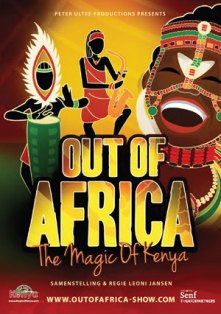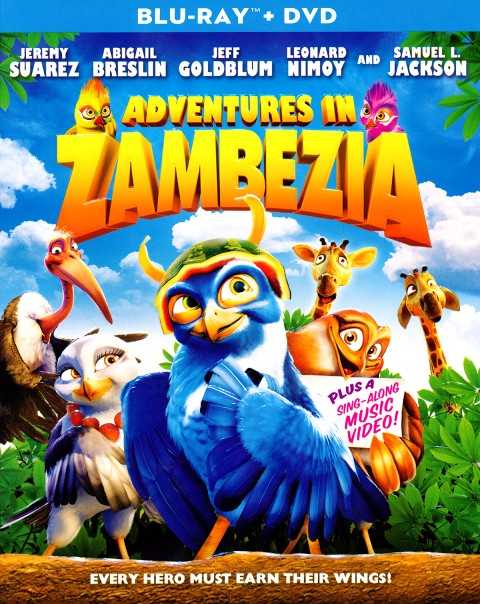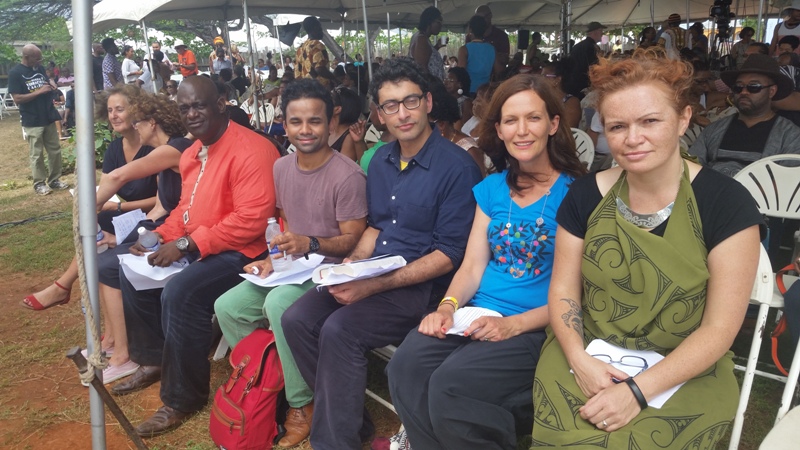By Fred Mbogo
Published July 18, 2013
 It is a pity that when the Kenya Tourist Board decided to employ theatre as a tool in marketing Kenya as a tourist destination in 2012, it did not imagine a theatre director or group in the eastern African country that it could work with. Instead, it picked Peter Ultee Productions B.V. of Amsterdam, the Netherlands as a preferred conduit of its business. This resulted in the production and European tour of the stage musical titled Out of Africa: Safari through Magical Kenya and its subsequent screen version.
It is a pity that when the Kenya Tourist Board decided to employ theatre as a tool in marketing Kenya as a tourist destination in 2012, it did not imagine a theatre director or group in the eastern African country that it could work with. Instead, it picked Peter Ultee Productions B.V. of Amsterdam, the Netherlands as a preferred conduit of its business. This resulted in the production and European tour of the stage musical titled Out of Africa: Safari through Magical Kenya and its subsequent screen version.
Perhaps the saddest part of Kenya Tourist Board’s choice of production house is the fact that the musical’s priority audience was European: Denmark, Netherlands, Luxemburg, and Belgium. The musical was never staged at any of the frequented theatre stages in Kenya. Copies of the screen version of Out of Africa are only on sale in Europe; I had to get a copy from a Danish contact so many months after production.
This may make economic sense in as far as the task of the musical is concerned: to entice Europeans to come and spend money in Kenya as tourists. The argument is simply that staging the play in Kenya might not attract full-houses anyway besides the fact that the target audience is the potential European tourist who is to be sensitized about the “riches†and “cultural diversity†in a land that in the annals of history is known as the “cradle of humanityâ€. Those might not be urgent issues to a Kenyan audience.
Unfortunately that economic sense raises a number of questions some of which might seem unfair to Peter Ultee Productions. Firstly, there is the question of whether locals cannot tell their own story better that “international actorsâ€. That in fact, by commissioning Peter Ultee Productions to be the main story teller on Kenya to Europeans, the conversation is merely reduced to a discussion between Europeans only. In that case Kenya becomes a passive subject where it cannot assert itself; it has to agree with what Europe thinks of itself.
The second question is whether by picking Peter Ultee Productions as the executors of the deal to sell Kenya, the Kenya Tourist Board didn’t in fact show the contempt with which it holds local production houses. In effect these production houses are so very worthless they cannot effectively mount a stage musical to sell their country abroad. Unfortunately, Peter Ultee Productions having been commissioned to tell the story of Kenya features no one on its list of credits for the crew that is essentially Kenyan unless you mention the lowly position as “Wardrobe†held by Everlyne Adhiambo as the stellar example of promoting local talent.
But this is not to say that Out of Africa the musical is not an admirable work of art. Indeed, it features such magnificently choreographed dances. The movement, made to look so effortless comes to life in the intricate patterns created on stage by the bodies. Portia Lebohang, The South-African choreographer, succeeds in merging what appear to be simple movements with the dexterity of the bodies of the dancers in a suggestion of vital and colorful if not loud energy. That helps in placing the voices at par with the rising and lowering tempos which makes room for a blissful interaction of contrasts.
The cast and band is wholesomely Kenyan. It is a pity, again, that the musical couldn’t be staged at popular theatre spaces in the country if only for Kenyans to marvel at the ‘celebrity’ list in the cast. For most of the dancers and singers are well known television actors including Mkamzee Mwatela of film and TV series Shuga and Mali, Charles Ouda of Makutano Junction, Patricia Kihoro and Amileena Mwenesi of the reality show Tusker Project Fame. There is also Odek Ochung, a lead musician with Tamasha Beats group as well as Neema Ntalel, a famed gospel singer.
 Yet even with this magnificent cast, the Dutch director Leoni Jansen still walks the beaten path rehashing cliches, and speaking volumes of what the typical uninformed European will comfortably fall for as the true, authentic Africa. This is that space that has been untainted and unspoilt by the ‘impurities’ that are from modern world. To go to Kenya, so suggests Jansen’s direction and Lebohang’s choreography, is to go to a world that is static- like a museum. Granted, there are modern sounds in the form of hiphop (Gidi Gidi Majimaji’s Unbwogable, for example) and rumba but these are betrayed by a choreography that suggests that rawness one must associate to the first lines of the musical’s narrator: ‘…cradle of mankind, where you all come from.’That world is incapable of moving, and so the musical becomes the floor and wall on which viewers must walk while admiring the artifacts on the immobile wall of that Kenya.
Yet even with this magnificent cast, the Dutch director Leoni Jansen still walks the beaten path rehashing cliches, and speaking volumes of what the typical uninformed European will comfortably fall for as the true, authentic Africa. This is that space that has been untainted and unspoilt by the ‘impurities’ that are from modern world. To go to Kenya, so suggests Jansen’s direction and Lebohang’s choreography, is to go to a world that is static- like a museum. Granted, there are modern sounds in the form of hiphop (Gidi Gidi Majimaji’s Unbwogable, for example) and rumba but these are betrayed by a choreography that suggests that rawness one must associate to the first lines of the musical’s narrator: ‘…cradle of mankind, where you all come from.’That world is incapable of moving, and so the musical becomes the floor and wall on which viewers must walk while admiring the artifacts on the immobile wall of that Kenya.
For that reason, details are carelessly woven into the story, for after all the whole picture should be of raw Africa. This means that mispronunciations in songs like “mwana wa mbere†as suggested in the programme are left at that. For after-all the target audience cannot tell the difference or even meaning of that song. A Luluyia speaker seated in the audience must feel irked by such carelessness. And so would a Gikuyu listening to what the programme calls “Enyumba yaâ€. The failure to get the pronunciation right must be a pointer to the disdain with which the producers hold the material they are working with. Everything is great as long as it makes cents, not sense.
The soul of the art is lost as Kenya is represented as this one or single entity in which there is an absence of individual narratives. It plays along the lines that “all Africans are the sameâ€! Even the title of the musical as “Out of Africa†doesn’t help much. It is straight from Karen Blixen’s musings in her novel with the same name. Critics have dismissed Blixen’s Out of Africa as yet another retelling of the savagery of the African. Indeed, to some extent, Out of Africa the musical is simply that: an exploration of the rawness of what Africa is- that unceasing energy that so captivates the civilizedThe African is thus trapped in this rawness, he cannot be refined enough. Perhaps, sadly, that refinement can only happen in critical European audiences’ minds.
 It must worry Kenyan theatre practitioners such as George Orido of the musical Obama or John Sibi-Okumu of the Eric Wainaina-written Broadway production Mo Faya, among others when national agencies such as Kenya Tourist Board favour foreign creatives over them. Why must the local story be told by those who won’t care much for its truth or authenticity? That question must not exist again if the Kenya Tourist Board gets serious on its job by tempering reality with a dosage of the truth that Kenya is bigger than a static museum; it is breathing, mobile, and is made up of a million little pieces!
It must worry Kenyan theatre practitioners such as George Orido of the musical Obama or John Sibi-Okumu of the Eric Wainaina-written Broadway production Mo Faya, among others when national agencies such as Kenya Tourist Board favour foreign creatives over them. Why must the local story be told by those who won’t care much for its truth or authenticity? That question must not exist again if the Kenya Tourist Board gets serious on its job by tempering reality with a dosage of the truth that Kenya is bigger than a static museum; it is breathing, mobile, and is made up of a million little pieces!
Fred Mbogo, PhD, teaches in the Department of Literature, Theatre and Film Studies, School of Arts and Social Sciences, Moi University, Eldoret, Kenya. He holds a Master’s degree in Dramatic Arts from the University of the Witwatersrand, Johannesburg, South Africa.




